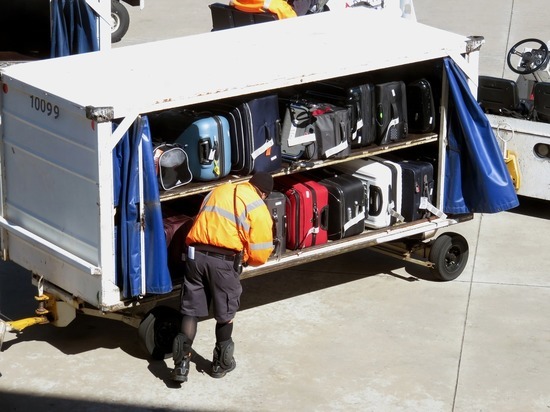The find, found in one baggage at the Munich airport, proves that loyalty to the grave is an absolute concept, not a relative one. As reported on Tuesday, August 4, the press secretary of the Federal Police Service, at the Munich airport on August 3, two women were detained, transporting a male skeleton in their luggage.
“Indeed, there is nothing that cannot exist in the world,” said Christian Koglmaer, spokesman for the Federal Police Service at Munich Airport.
“It was a routine, automatic, multi-stage baggage check,” explains Köglmeier. “If such a check reveals deviations from the norm, the baggage control officer will again carefully check the item in the baggage that he does not understand.” There is so much in the warehouse of identified items prohibited for carriage at Munich Airport: a bar stool made of elephant legs, an ashtray made of turtles, old firearms and edged weapons, etc. But the customs service has not yet found a human skeleton.
Following the discovery of the skeleton, Bavarian customs, federal and police officers immediately went to the baggage checkpoint in Terminal 1. “An experienced medical expert confirmed that these were indeed human bones,” said Christian Köglmeier. After that, police officers started looking for the owners of the suitcase.
It turned out that the luggage belonged to a 74-year-old lady who was flying with her 52-year-old daughter from Greece to Munich. Further, their path followed to Yerevan through Kiev. In a suitcase, in a wooden box, they carried a human skull and a few more bones.
The women live in the suburbs of Thessaloniki. When asked why they chose to fly through Munich, the answer was simple: “Without a second thought! Simply connecting flights is always cheaper than direct flights. “
The women explained to police that the skeleton belonged to the husband of an elderly lady (and the father of a young lady), who died in 2008. He was buried in a cemetery near the city of Thessaloniki. But now they are taking his remains to bury in their native Armenian land.
“The women carried the man’s death certificate and the relevant Greek documents,” explains Christian Köglmeier. “The police checked these documents and made sure they were authentic.” A public attorney from Lanshut confirmed that in such a case there is no reason to impose any penalties.
In this regard, Thomas Meister, a customs specialist at Munich Airport, gives the following explanations: “The desire of family members to bury their relative in their native land is natural and not so rare. This happens from time to time. For such a case, there are clear instructions in Germany. Firstly, only funeral homes are authorized to transfer or transfer remains. Secondly, such transportation must be registered in advance with the customs service. Third, the remains must be transported in a sealed coffin. This is done in order to exclude the case of concealment of premeditated murder. “
“If you want to take the urn with you on the plane, you must contact the funeral home in advance to obtain permission. Airlines usually don’t care whether you put the trash can in your suitcase or take it with you as carry-on luggage, ”explains Thomas Meister.
Alex Gradov.
Germany says this:
Germany: Layoffs at Lufthansa inevitable
Hesse’s Transport Minister on the requirement to wear a mask: “We are not a police state”
State aid to companies and freelancers in the amount of 6.6 billion euros
Giessen Researchers Testing Drug Against Coronavirus
